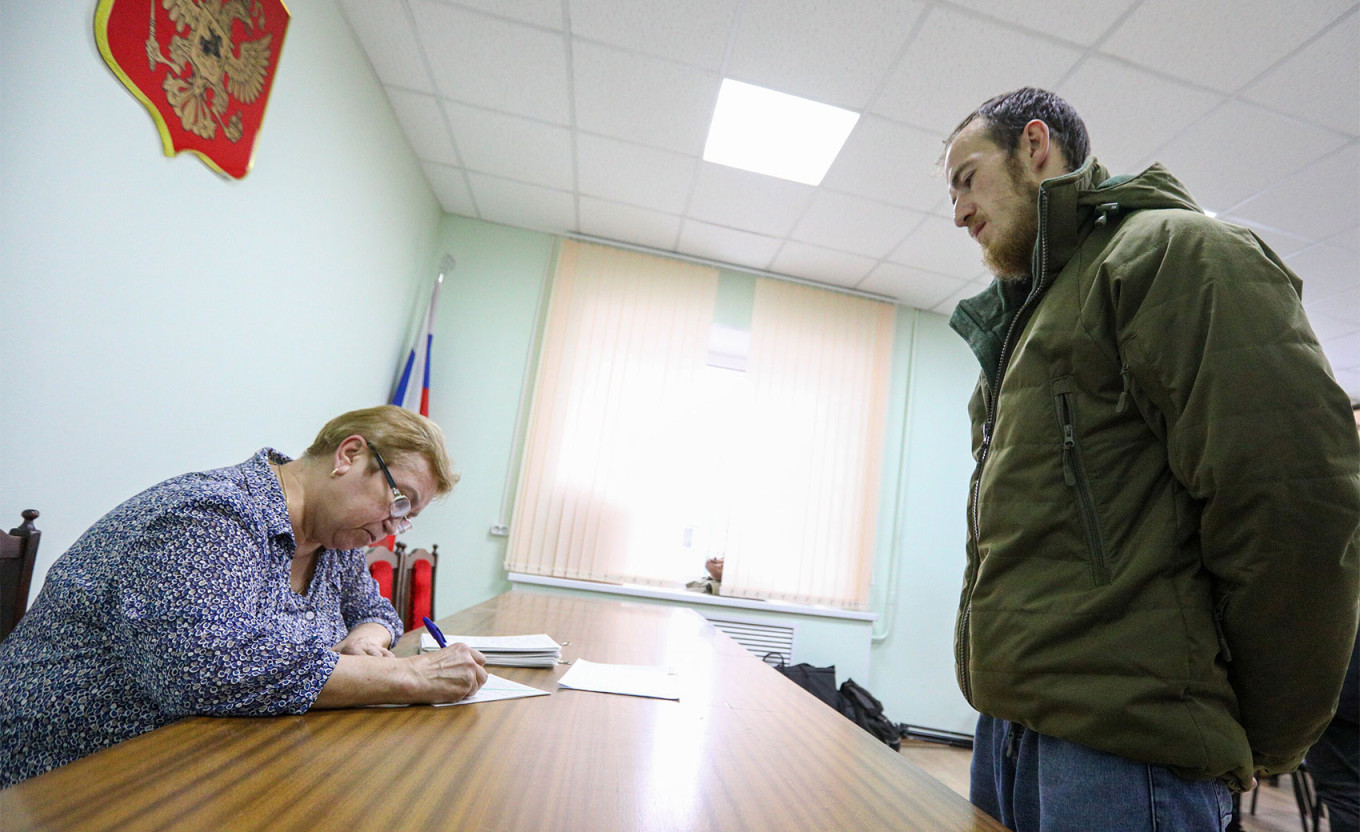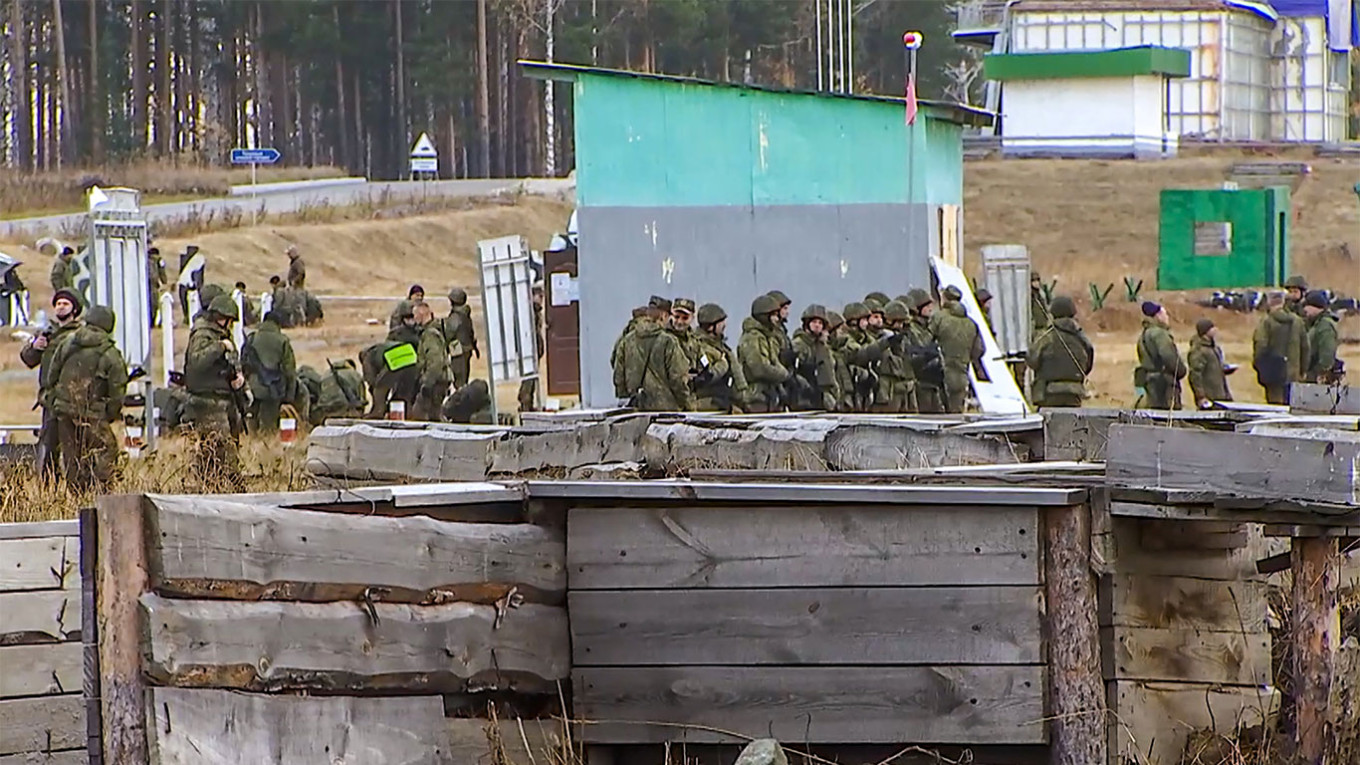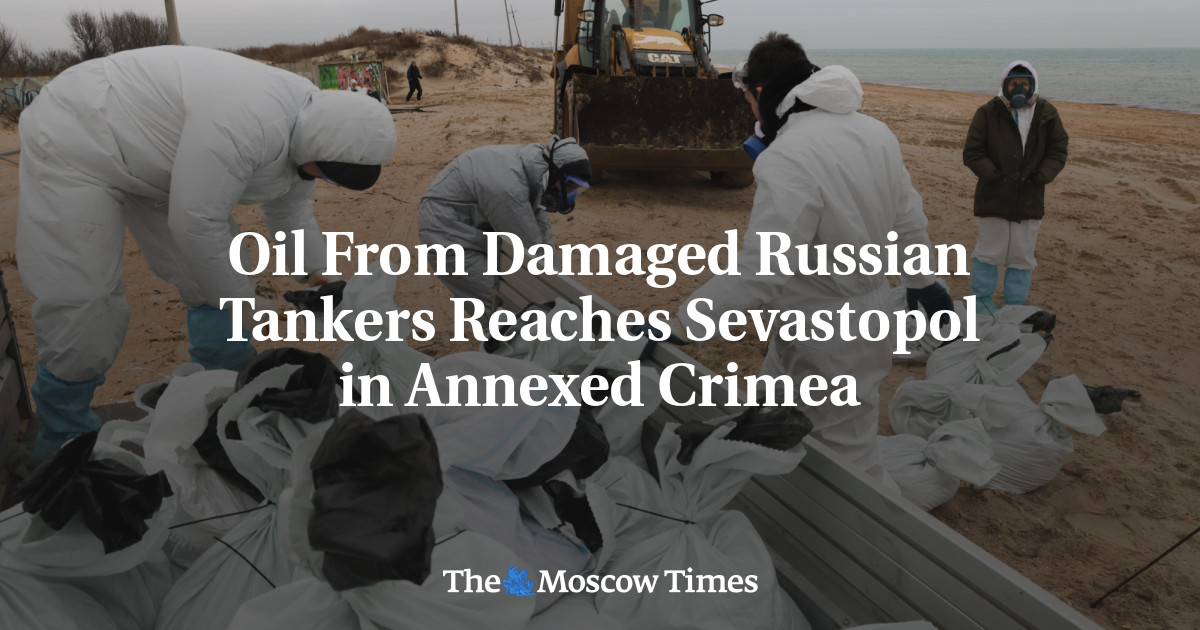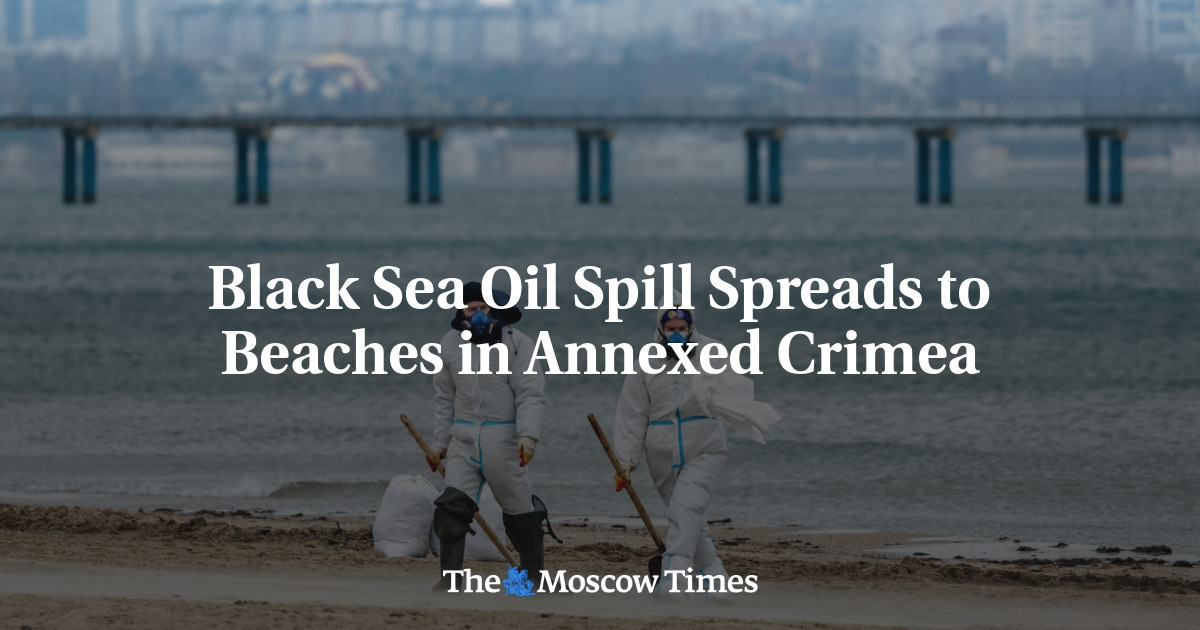The Russian military is calling up a higher-than-normal number of reservists for its annual training exercises in at least one region of the country, The Moscow Times has learned from senior managers of several companies in the Moscow region.
Experts say the mass training call-ups could be an effort to make up for lagging volunteer recruitment or a step toward a major offensive in Ukraine as Russia seeks to capitalize on Kyiv’s mounting munitions shortages.
Military commissariats in the Moscow region have sent a flurry of letters to enterprises, demanding that they provide lists of their male employees eligible for reserve duty.
These lists must contain detailed information: First and last name, date and place of birth, level of fitness, military specialty, military rank, position in the company, address and phone number, a military commissariat official told The Moscow Times on condition of anonymity because he is not authorized to contact the media.
"Letters are sent to all organizations registered in the Moscow region. Our military enlistment office is supposed to gather all persons liable for military duty for training camps for a few weeks in mid-June," the military enlistment office employee said.
Representatives from four Moscow region enterprises confirmed this information to The Moscow Times.
Each one said they were concerned that the temporary absence of a significant share of their workforce could force the firms to operate at limited capacity or halt their operations altogether.
"At my enterprise, more than 20% of the staff of 1,000 people could be taken away for military duty. That's how many fall under the criteria," a senior manager at an industrial enterprise in the northwestern part of the Moscow region told The Moscow Times.
He said he received a letter from the local military enlistment center at the end of March.
"For us, this potentially means partially halting work at all production sites, as well as being unable to operate warehouses, and so on,” the manager said. “And this is guaranteed to disrupt our production plans.”
 Military Commissariat of the Moscow Region town of Mytishchi.
Kirill Zykov / Moskva News Agency
Military Commissariat of the Moscow Region town of Mytishchi.
Kirill Zykov / Moskva News Agency
Senior managers of three other enterprises and companies in the western and northern Moscow region also confirmed that they had received requests from military enlistment offices to provide detailed data on their employees.
"We may also have to suspend operations for a while," a senior manager at the company, more than 100 kilometers from Moscow, told The Moscow Times.
"We are now figuring out how the company will operate when the men leave for military training camps," the manager said, speaking on condition of anonymity because he was not authorized to speak to the media.
Higher-than-normal quotas for reservist training camps could also take place in other Russian regions, a source close to the Defense Ministry told The Moscow Times.
Russia normally holds training exercises for its reservists every year.
"The training camps provide retraining in a military occupational specialty. And for the army, it is a system check for the General Staff's organizational and mobilization department," a source close to the Defense Ministry told The Moscow Times on condition of anonymity.
The number of people called up for training camps may vary by region, the source said.
President Vladimir Putin signed a decree on the conscription of reservists for military drills on March 1. Under the decree, the number of men the Defense Ministry will have to call up for training — as well as when the training will take place — are classified.
Russia and Ukraine have been stuck in a war of attrition for months. But given that Ukraine is short on ammunition due to stalled U.S. aid, and the Russian military has made slow but steady advances in the Donetsk region, Putin's army does not need a significant increase in numbers.
The Kremlin’s September 2022 "partial” mobilization of reservists for the war is still legally in force because Putin’s decree gave no end date. Nonetheless, launching a new round of mobilization remains a hugely unpopular move for the Kremlin.
However, if the Russian leadership continues to demand more Ukrainian territories, the army will need to significantly boost its numbers, a Russian military expert told The Moscow Times.
The military offensive itself would also need to be rehearsed and new soldiers must be trained, said the expert, who spoke on condition of anonymity because he is not permitted to speak to foreign media.
 Reservists of the Russian Army take part in combat training at firing ranges in Russia’s Central Military District.
Russian Defense Ministry / TASS
Reservists of the Russian Army take part in combat training at firing ranges in Russia’s Central Military District.
Russian Defense Ministry / TASS
The increase in call-ups for military training signals that the authorities want to raise the level of combat training and the cohesiveness of the country’s reserves as well as rehearse the procedure itself, Israeli military expert David Sharp told The Moscow Times.
"When people are pulled away from work and called up more than in peacetime, it's an indication that the chances of them being drafted or mobilized are increasing,” Sharp said.
“Now they're called up for training, and then they could go to war."
Through the voluntary and coercive recruitment of contract soldiers, the Russian army appears to have been able to compensate for the heavy losses it took while holding back the Ukrainian offensive and then launching an active Russian offensive, he said.
"But this flow is not limitless and may even start to dry up despite the increased financial incentive. It will need to be replaced by someone. However, it's hardly a matter of urgency," Sharp said.
The alternative, Sharp said, would be the Kremlin deciding that it can achieve its more ambitious goals by dramatically increasing the army's numbers.
“Especially if Ukraine is having trouble getting help from its allies, then these reservists may be needed. However, they are the least likely to be suitable for an offensive operation against a well-established, experienced enemy.”
 (1).png)
 8 months ago
11
8 months ago
11













